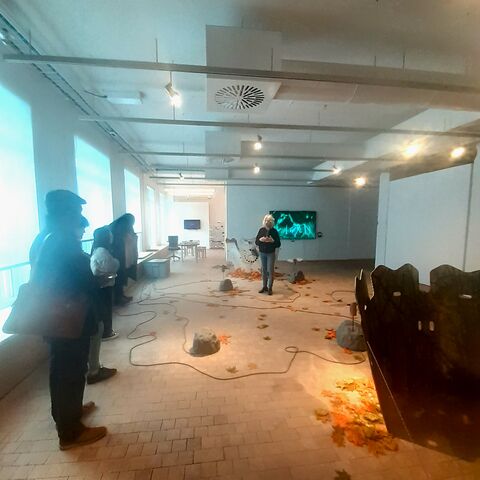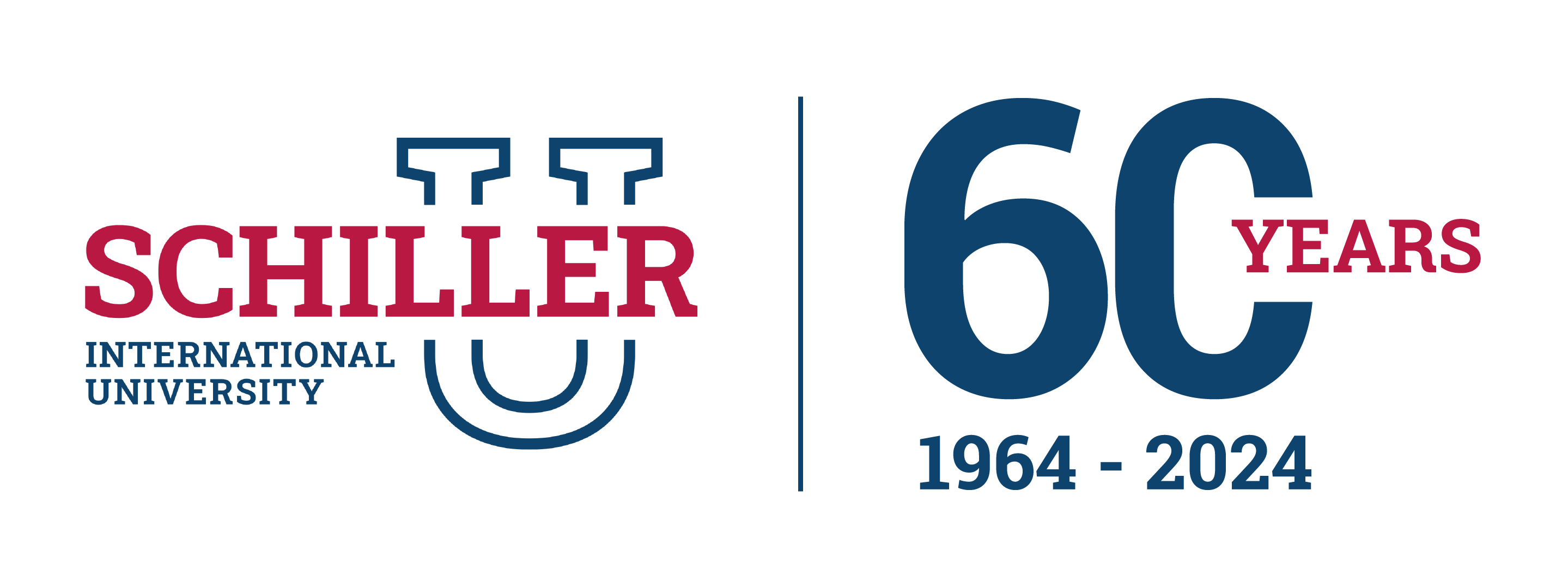Paris IRD Students Delving into Multitude & Singularity
On February 8, 2024, Paris Master of International Relations and Diplomacy students visited the Multitude & Singularity exhibition that is currently held at Le Bicolore, House of Danemark, which is situated on the Champs-Elysées Avenue, a short distance from Schiller’s Paris campus.

The IR 505 International Relations and Diplomacy Workshop in which they are enrolled, taught by Dr Myriam Benraad, Global Academic Chair for International Relations and Diplomacy at Schiller International University, covers topics such as artificial intelligence, trans/posthumanism, and biotechnology, and how these relate to the current and future state of global politics and diplomacy.
Thus, this exhibition offered students a rare chance to delve deeper into two concepts that gained currency with the turn of the new millennium: the technological singularity, or the belief that machines will eventually surpass humans, and the multitude, or the crowd composed of individuals connected to one another through networks.
By definition, the singular lies on the other side of the particular and unique. It also denotes the assurance that machine intelligence will surpass human intelligence. But is it reality or just science fiction?
The concepts of multitude and singularity may be applied to people and technologies, as the students could discover. The multitude refers to the amount of data put into the AI programs that are currently the center of attention. Still, the term can just as easily refer to democratic commitments converging on social media.
Schiller students were asked to consider the singularity that concerns us during their visit—precisely, the online personas or profiles that are continuously adjusted, while people ought to be spending just as much time considering the idea of technological singularity, which raises issues regarding humans’ relationship with the machines they are growing more and more reliant on.
It was an ideal outdoor experience to complete intense IR 505 classroom discussions about these pressing issues of the day, as the artworks gathered for this exhibition represent the world’s complexity in its digital form.

 Apply Now
Apply Now









